Emerging Dynamics in the Middle East: Implications and Options for Pakistan
Pakistan must uphold national interests amid escalating ME tensions: IPS seminar
Pakistan
needs to devise a rational, comprehensive and well-thought out strategy keeping
in view its domestic, political and economic interests in the wake of the fast
deteriorating situation in the Middle East after the assassination of top Iran
geo-strategist, General Qasem Soleimani, in a US air strike in Iraq. However,
the country cannot be a mere onlooker in the worsening situation and it needs
to be proactive in creating solutions as a mediator.
These
views were expressed by experts during a roundtable meeting titled ‘Emerging
Dynamics in the Middle East: Implications and Options for Pakistan’, which was
held at Institute of Policy Studies (IPS), Islamabad, on January 3, 2020 .
The
session was addressed by Ambassador (r) Abrar Hussain, Ambassador (r) Naila
Chauhan, Pakistan former ambassador to Iran, Khalid Rahman, Executive President
IPS, Air Commodore (r) Khalid Banuri, Air Commodore (r) Khalid Iqbal, Dr Syed
Muhammad Ali, executive director, Centre for Peace, Security and Developmental
Studies (CPSP), Dr Bakare Najimdeen, director, Centre for International Peace
and Stability at National Defence University and senior IPS associate and
security analyst Brigadier (r) Said Nazir Mohmand.
The
speakers were unanimous in their views that the biggest threat faced by
Pakistan at the moment was the military deployment at its western border by
India and the worsening situation in Indian occupied Kashmir. Hence it was not
in the interest of Pakistan to shift its military and strategic focus from
Kashmir and all policy options regarding the Middle East crisis should be
weighed in in this context.
On
the other hand, Pakistan’s current economic condition is not very bright and it
is heavily dependent on remittances by expatriates as well as its energy
requirements from the Middle East. Keeping in mind these factors, Pakistan is
not in a position to take sides in the current conflict. Therefore, it will be
wise and prudent for the country to stay neutral and maintain a low-key
profile, they added.
Pakistan,
however, can play a diplomatic role in de-escalating the situation while
staying in the background. Historically, it has been a fundamental part of
Pakistan’s foreign policy to play the role of mediator whenever there is
escalation of tension between Muslim countries. So if tensions rise further
between the US and Iran, it will be best for Pakistan to play a back-channel
role, advising both sides to practice restraint and extend its apprehensions
regarding the situation of human rights as well that of regional and global
peace to all the relevant stakeholders. It should also be conveyed that if the
conflict does expand, it will cause significant disturbances in the Middle East
because of crisscrossing alliances in the region. The Gulf states should not
participate in any escalation in the region, because ultimately they will
suffer, the speakers said.
The
experts also viewed that all-out war between the US and Iran will prolong the
stay of American military in Afghanistan. This will have repercussions for
Pakistan as this will force the country to stay committed on the western front,
rather than focusing on its eastern border, they said.


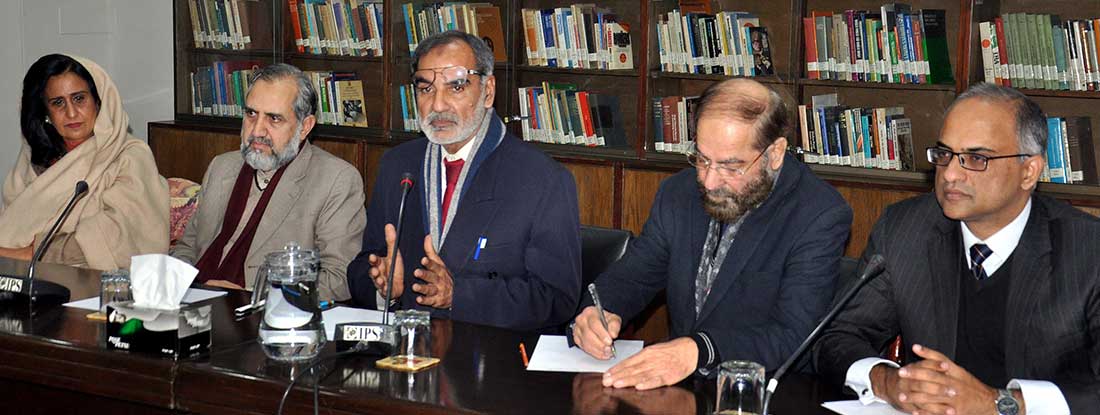
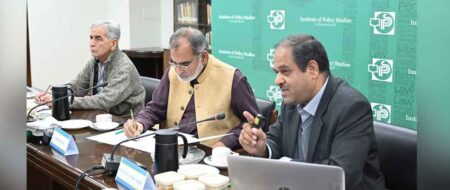
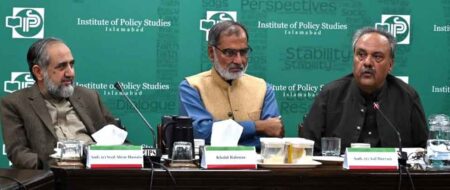
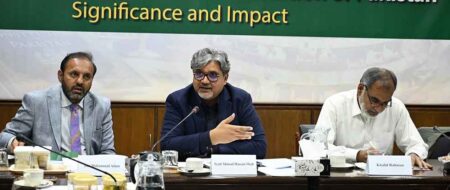
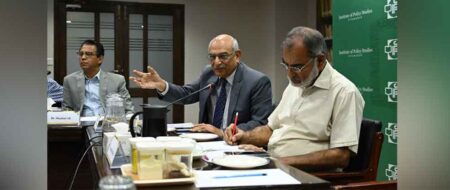

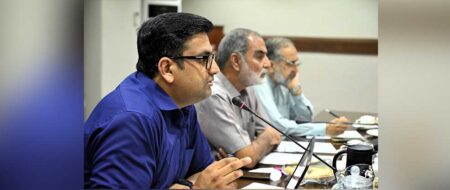
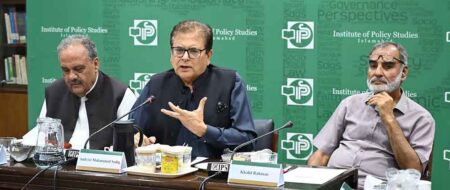


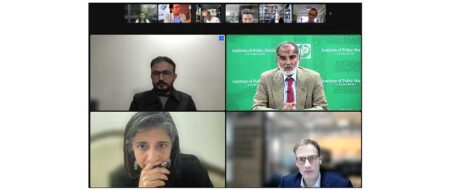
Comment (1)
Encompassing the Middle East what Pakistan must do is uniquely strange. Caring its economic strength Pakistan has its own icon role relating to some legendary future tasks as well. Pakistan was established not to secure its economy or land and resources but for an ideology to pave a heavenly track penetrating legendary Islamic leadership into the midst of the M.E.
Simply Pakistan stands for Islam does not mean to grow up sectarian gangs to lead Islamic Pakistan but to lead the way for Imam Ali Mehdi in the 21st century or the 15th century hijra which we have passed 41 years.
Hence to cure Pakistan’s economy has a little weightage than to sacrifice what we have earned yet.
“ZIONISM vs KABA, Myths Decoded” my work can enlighten well over what IPS discusses on M.E as well as Indian issue influencing M.E in terms of Ghazwa All Hind.
I wish to be heard or holding a debate at IPS
Comments are closed.